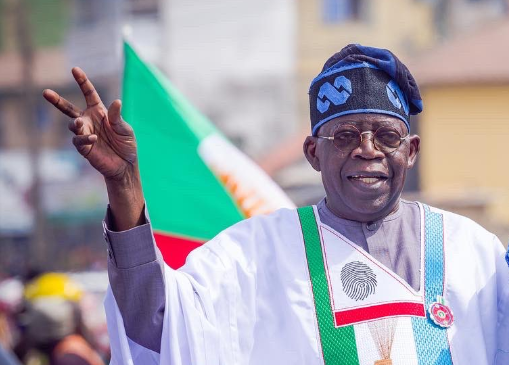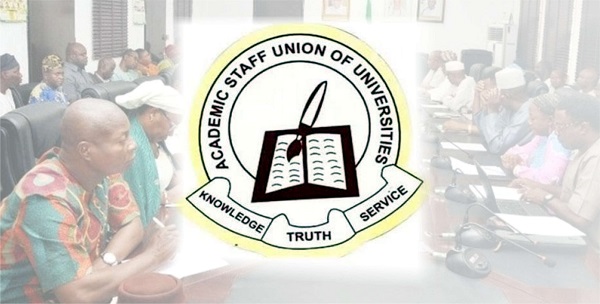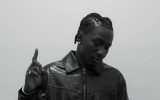by Akin Osuntokun
There is something palpably teleological about presidential elections in Nigeria. Over time there has evolved a successive pattern of political conditioning that orientates the Nigerian public to accurately anticipate outcomes of presidential elections independent of the actual conduct of the election itself. Outcomes are anticipated and legitimised by this conditioning with or without regard to the ritual of voting.
It is almost certainly possible to predict the outcome before candidates even begin to signify their intentions to contest. One variant of this peculiarity is a derivative of the logic of substitution by elimination and it was first popularised by former military President Ibrahim Babangida in the following verbiage ‘We don’t know who will succeed us but we know those who would not’. The subsequent annulment of the 1993 presidential election and the abortion of his eight-year transition to civil rule programme was the culmination of this mind-set.
Combinations of the factors of hegemony; conflict resolution; balance of terror; tradition; and equity and fairness are the determinants of the outcome of presidential elections in Nigeria-before they are conducted.
Long before Tafawa Balewa and the Northern Peoples Congress (NPC) assumed or retain control of the federal government in 1960 – how realistic was it to expect any contrary outcome?
Prior to that outcome, Britain wielded the power of hegemony over Nigeria and had a vested interest in who succeeds to the national political power it was vacating. The question of who it favours for this position among the three contending parties – the Action Group (AG), National Council of Nigerian Citizens (NCNC) and the Northern Peoples Congress (NPC) – constituted the determinant factor of which party emerged to form the government after the 1959 general election. The elections merely ratified that preference.
Thus regardless of the 1959 elections, the belief (and apparently the reality) was that the retiring colonial power manipulated and manoeuvred the NPC to political advantage over the other two contending rivals. Indications of this predilection include credible speculations of playing political gerrymandering with the population census of Nigeria to favour the ‘north’ and deference to the wishes of the NPC on such issues as appointing the date of Nigeria’s independence on October 1st 1960.
In addition to the British suzerainty factor and preference, other predisposing factors include rationalisations to the effect that balance and fairness require that – arrayed against the utter economic and technocratic dominance of southern Nigeria – the north should be compensated with cession of political control.
Before Alhaji Shehu Shagari became president in 1979 on the political platform of the National Party of Nigeria (NPN), the predominant hegemonic power was the northern region-controlled military dictatorship that came into existence in July 1966 and lasted through the civil war. In the determination of this hegemony and according to the dictum of knowing to whom power would not be ceded, it was fairly certain that Nigerians east of the Niger River had been effectively ruled out of presidential contention in Nigeria for years to come.
An allied certainty was that whosoever attains the pinnacle of power in Nigeria will enjoy that privilege at the grant and permit of the northern/military hegemony. It was in this recognition that the then Chief of Army Staff, General Theophilus Danjuma, boasted to the Nigeria public that General Olusegun Obasanjo was appointed successor to General Murtala Mohammed at his beck and call.
In certain respects, the late Chief Obafemi Awolowo cuts a quixotic figure in the politics of Nigeria. Impervious to the nature of the power politics that attended post-civil war Nigeria, he genuinely and naively believed that it was possible for him to become president without being accepted and granted the status of a proxy of the extant hegemonic power. In 1979, he went on to compound this naivety by floating a presidential ticket comprising himself and Phillip Umeadi (Yoruba and Igbo) – completely precluding the northern half of Nigeria.
If there was a core political party of the northern political establishment in 1979, that party was the NPN – ceding room and space at the periphery to the Great Nigeria Peoples’ Party, (GNPP) of Waziri Ibrahim and the Peoples Redemption Party (PRP) of Aminu Kano. In the light of the preclusion of Awolowo, the Igbos and the northern peripheral parties, did anybody need to await the outcome of the 1979 election to know which party’s candidate was the president in waiting?
The 1993 presidential election did not follow suit in terms of the predictability of a successor president because it had been determined that none would come and when it nonetheless manifested, the potential to succeed against all the contrived odds-the hidden agenda was unveiled in full glare of the Nigerian public with the outright annulment of the election. In a rather unique manner, the crisis evolved to become the incubator of the 1998/1999 transition to civil rule programme and the ultimate emergence of Olusegun Obasanjo as president.
At the expiration of the life and tenure of Gen. Sani Abacha in 1998, the successor regime of Gen. Abdusalami Abubakar adopted the formulation of the 1993 presidential election annulment crisis as hinging on military disengagement from power and presidential power shift to the south – specifically the South-west. Thus the two presidential candidates of the 1999 presidential election were Olusegun Obasanjo and Olu Falae of the PDP and All Peoples Party (APP) respectively.
Other than fulfilling the righteousness of getting the South-west fully on board the transition train, there was hardly a doubt on which of the two contenders was going to carry the day. Obasanjo was the preferred candidate of the dominant military wing of the northern political establishment and was specifically enlisted to be crowned president.
If the choice of Obasanjo was at the discretion of the oligarchy; it was the implicit balance of terror capacity of the South-west to force the issue; the logic of conflict resolution; and equity and fairness principle that exacted the concession of the office of the president for the region.
By reason of the incapacity of the other political parties, the PDP has more or less turned presidential elections in Nigeria into a one party affair. From 1999 – winning the PDP party primaries was as good as winning the presidential election. Owing to its origins as a sweeping pan-Nigerian nationalist movement (against military dictatorship and General Abacha), the PDP is by far the biggest and most widespread political party.
On account of its largely uncontested dominance – in particular its stranglehold on Nigeria’s Presidency, the PDP floated the custom of zoning and rotation of the office of the president between the north and south. This background was what made the emergence of late Umaru Musa Yar’Adua as president a fait accompli in 2007.
These days, the habitual expression of frustration with the government of President Goodluck Jonathan invariably ends with the resignation that his re-election is a foregone conclusion. In Nigeria and much of Africa, this inevitability is frequently attributed to the incumbency factor as the omnibus guarantee for the re-election of leaders.
In essence, the meaning of this incumbency factor is the capacity to change the probability of actions – the classical definition of power. At the core of this power is the vested monopoly control over the legitimate use of the powers of coercion – the military, the police and allied security forces.
Inherent in this incumbency power factor is the equally crucial element of being the ultimate repository of the dispensation of political and economic patronage. The latitude for this kind of patronage is particularly formidable in Nigeria and other oil producing economies on account of the rough and ready convertibility of oil to cash and its vulnerability to the discretionary authority of the president.
To the extent that membership of opposition theoretically entails the sacrifice of being precluded from the potential largesse of the party in power (in a government dominated economy), the opposition party will almost always lack the stamina to stand the test of staying the course.
Before the emergence of Jonathan and since the end of the civil war, power politics in Nigeria tended to be perceived as the exclusive preserve of the ‘north’(as in the north of old) as senior partner and the South-west as the junior partner. Now, in so far as the Niger Delta region is synonymous with the economy of Nigeria and the people living therein have come to power politics consciousness, Nigeria has to come to terms with the reality of the existence of another regional player with the power of veto to assert itself.
As 2015 looms large in the horizon, all the factors we earlier identified at the commencement of this essay – hegemony (presidential incumbency and PDP), conflict resolution (zoning), balance of terror (crude oil veto) and equity and fairness (the first incumbent from the Nigel Delta region) are lining up advantageously for the return of Jonathan. Panache and style may not be his strong points but neither am I convinced that, in basic governance performance, he fares poorly against his predecessors.
—————
Op-ed pieces and contributions are the opinions of the writers only and do not represent the opinions of Y!/YNaija.
















